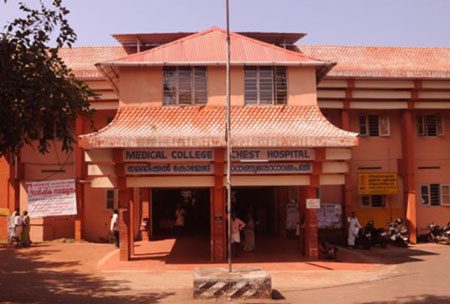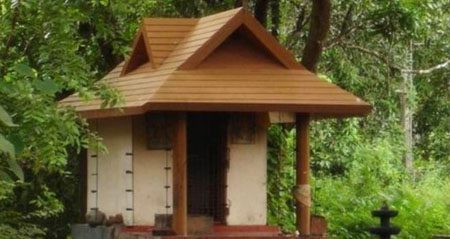P. Ravi Shankar
Aruba, Kingdom of the Netherlands

Having been involved with medical humanities for over eight years in medical schools in Nepal and Aruba, I began to think about my own medical education in the late 1980s and early 1990s. The term medical humanities was not in vogue in India during those days, and only students who had studied science subjects during the eleventh and twelfth (last two) years of school were eligible for admission to medical school.
The state of Kerala at the southern tip of India has good health indicators and a rich literary and cultural heritage. The town of Thrissur (or Thrisshivaperur) in central Kerala is the cultural capital, famous for a grand temple festival (Thrissur Pooram) held toward the end of April or beginning of May. Richly caparisoned elephants, the beating of traditional drums, and a vibrant fireworks display characterize the festival. Kerala has many temples, churches, and mosques, and it holds a variety of community festivals, especially during the cooler season and in the months before the monsoon.
The Government Medical College Thrissur was started in the early 1980s and moved a few years later to its own campus at Mulangunathukavu (a mouthful), where many of the college departments were housed in the converted wards of an original tuberculosis sanatorium. Buildings had traditional Kerala architecture with tiled roofs, and the sprawling campus offered plenty of space for student activities and future expansion.
The college followed a traditional discipline-based curriculum. The first eighteen months were dedicated to the premedical subjects of anatomy, physiology, and biochemistry. We spent long hours in the dissection hall learning the minutiae of human anatomy. Our teachers were dedicated, but under a traditional curriculum we had no clinical exposure during the first eighteen months. Medical education in the 1980s changed slowly and was bound by tradition and the British colonial influence.
We were not formally exposed to the humanities during the undergraduate medical program, but the state of Kerala and the town of Thrissur have a rich tradition of learning and artistic excellence, and we had a college arts festival every year. In those days the college was affiliated with Calicut University, which had various disciplines of study and provided a well-rounded learning experience. Every two years we had an intermedical festival in which all six Kerala medical colleges which were functioning in the 1990s participated; the students were talented and the performances rich and varied.

Kerala has a tradition of political activism and relatively good health indicators. People are educated and politically aware. There is a lot of clamor about rights but less about duties and responsibilities. The college had a movie club which once a month screened movies by eminent directors from Kerala and beyond. The town of Thrissur is the land of temples, and it held a grand festival during April-May, as well as a fair in the center of the city where the medical college operated a stall, and students manning the various counters and exhibits interacted with the general public and explained medical concepts to the lay public. They also interacted with students from other disciplines and with the public during the Kerala Blood Donors Forum, which conducted blood grouping and education events in different parts of Thrissur and in the neighboring Palakkad district. The importance of blood donation was stressed and blood donation camps were also conducted so that the teaching hospital always had a good network of blood donor volunteers.
After the first eighteen months we would spend the morning hours at the hospital. For surgical specialties we were using the district hospital, but for medical specialties a new hospital had been constructed on campus. Our teachers were dedicated clinicians who as role models introduced us to ethics, professionalism, and patient-doctor relationships, but none of these issues were formally covered in the curriculum. Most of the clinical teaching took place in the hospital and there was little involvement by general practitioners. During the internship we were posted in a rural and an urban primary health center, the closest we ever came to a primary practice setting.
The town of Thrissur had a good public library of which many students were members. It had a good collection on a variety of subjects and we could borrow up to three books at a time. The college organized an annual intercollegiate quiz event which stimulated student interest and participation in subjects beyond medicine.
The college had a students’ union and elections to the union were a keenly contested affair. The union frequently organized cultural events on campus. In the 1980s all medical colleges in the state were run by the government. Students were selected on the basis of their performance in an entrance exam, but those unable to study in Kerala could travel to the many medical schools run by private organizations in neighboring states. In the late 1980s the government of the state of Kerala considered giving the nod to private medical colleges within the state; this led to massive student unrest and many of us participated in the demonstrations, as we were aware of the social and other determinants of health and knew that health was politically determined.
With its rich artistic traditions, history of political activism, high literacy levels, good health indicators, and social development, Kerala offers a fertile soil for initiating and developing medical humanities modules. I am confident that soon the medical humanities will become a reality in what has been called God’s own country.
P. RAVI SHANKAR, MD, FAIMER Fellow in Health Professions Education, is Professor of Pharmacology at the Xavier University School of Medicine, Aruba, Kingdom of the Netherlands. He is Chair of the Institutional Review Board and the Curriculum Committee. He is the faculty editor of Xavier Times, the school newsletter. Dr. Shankar facilitates a Medical Humanities module at the institution.
Photo credit: Dr Unnikrishnan VV, Additional Professor of Physiology, Government Medical College, Thrissur, Kerala, India

Leave a Reply